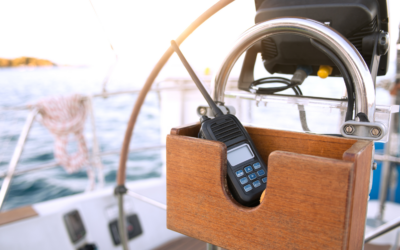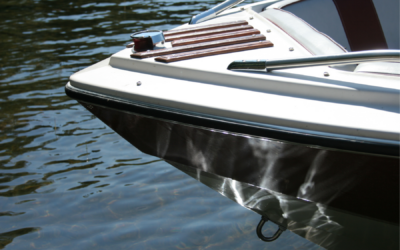Routine maintenance is an important part of boat ownership and a detailed logbook will help you keep track of what you did and when you did it. The logbook is basically a booklet that has information all in one place about everything you need to do (and hopefully have done) in order to keep your boat in perfect condition. It offers a detailed overview of all of the equipment that needs to be maintained and helps you track maintenance history.
A detailed boat maintenance log is an invaluable source:
- It allows you to know exactly when to repair or replace old equipment. The absence of a log can lead to a disorganized maintenance schedule and more breakdowns.
- It increases the safety of crew members. Keeping a detailed vessel maintenance log should result in fewer breakdowns. If your equipment is always kept in perfect working condition, it considerably reduces the risks of accidents.
- It can prevent problems regarding warranty claims by enabling tracking of all warranty information through a single document.
- The log can increase the resale value of your equipment (and vessel). Record-keeping helps you prove that the equipment has been properly taken care of during the time it was used on the vessel. If at some point you’re looking to sell, equipment with maintenance records retains a much higher value than equipment with no vessel maintenance log.
Every vessel will usually come with its own maintenance log. When you buy a used boat, you’ll want to be able to check over the maintenance log to make sure everything has been done to keep the vessel in satisfactory working order. As an owner, a maintenance log is a great aid in caring for your boat. Keep notes of all boat work, no matter how trivial it might seem to you, and include the date of the work and engine hours at that particular time.
Your list will be extensive, but key service elements to document include dates of regularly scheduled maintenance items such as fluids, filters, belts, oil, hoses, tanks, and so on as well as unscheduled maintenance items; for example, battery swaps, steering-cable replacement, and topping off hydraulic fluid. Logging any addition, replacement, or service of equipment such as deck hardware, smoke, and CO detectors, marine electronics, canvas, the marine sanitation system, lighting, throttle and shift cables, hydraulic systems, bottom paint, and more are also highly recommended. Documenting all this makes it easier to care for your boat, its engines, and its systems.
A side benefit of keeping a log is the longer you keep one, the more patterns of wear, based on your individual use, will begin to appear. So, knowing when to replace the battery or cable and keeping track of when you changed your boat’s oil and fluids ensures that you perform the tasks in a timely manner in order to keep your boat in top shape. Another good idea is to track your fuel purchases and engine hours to gauge your engine’s health by noting fuel quantity burned versus hours.
Another smart way to use the maintenance log is to keep track of part numbers, like spark plugs, filters, O-rings, the ignition-key number, and noting fuse and breaker types, and the amperage ratings for all your devices. This will make it easy to buy replacements. If your book has pockets on the covers, you can rip off the labels of parts boxes and keep them handy for reference.
A log is not only about maintenance. It should include the date when any new equipment was added and include the cost of parts and labor. This can help justify the price you ask for your vessel should you decide to sell. In essence, any time you do anything to the boat, whether it be service-related, routine maintenance, or parts replacement, write it down in the logbook. Do yourself a favor and fill out the maintenance log as thoroughly as possible. This might seem tedious, but it’ll pay off in the end.



